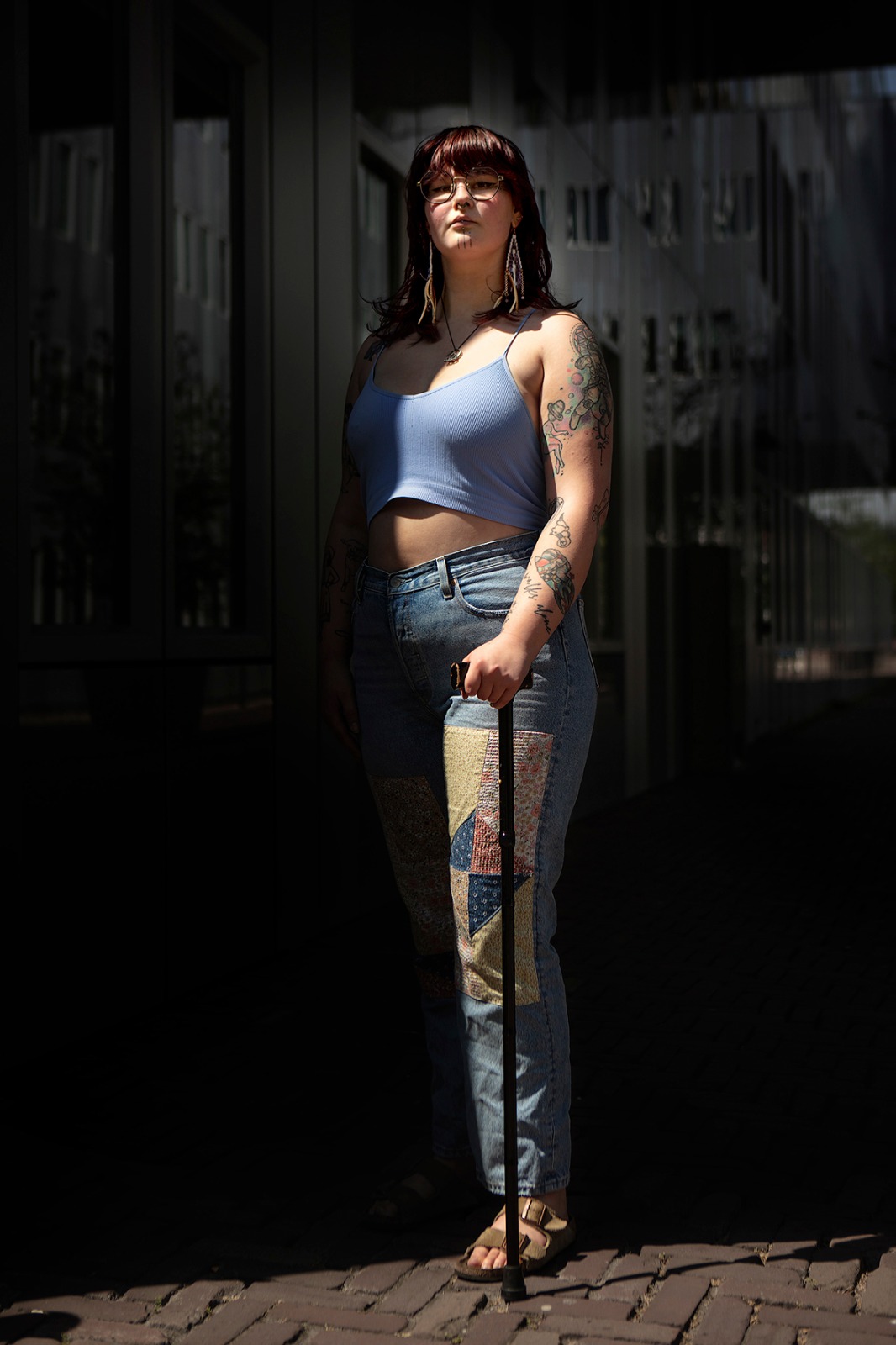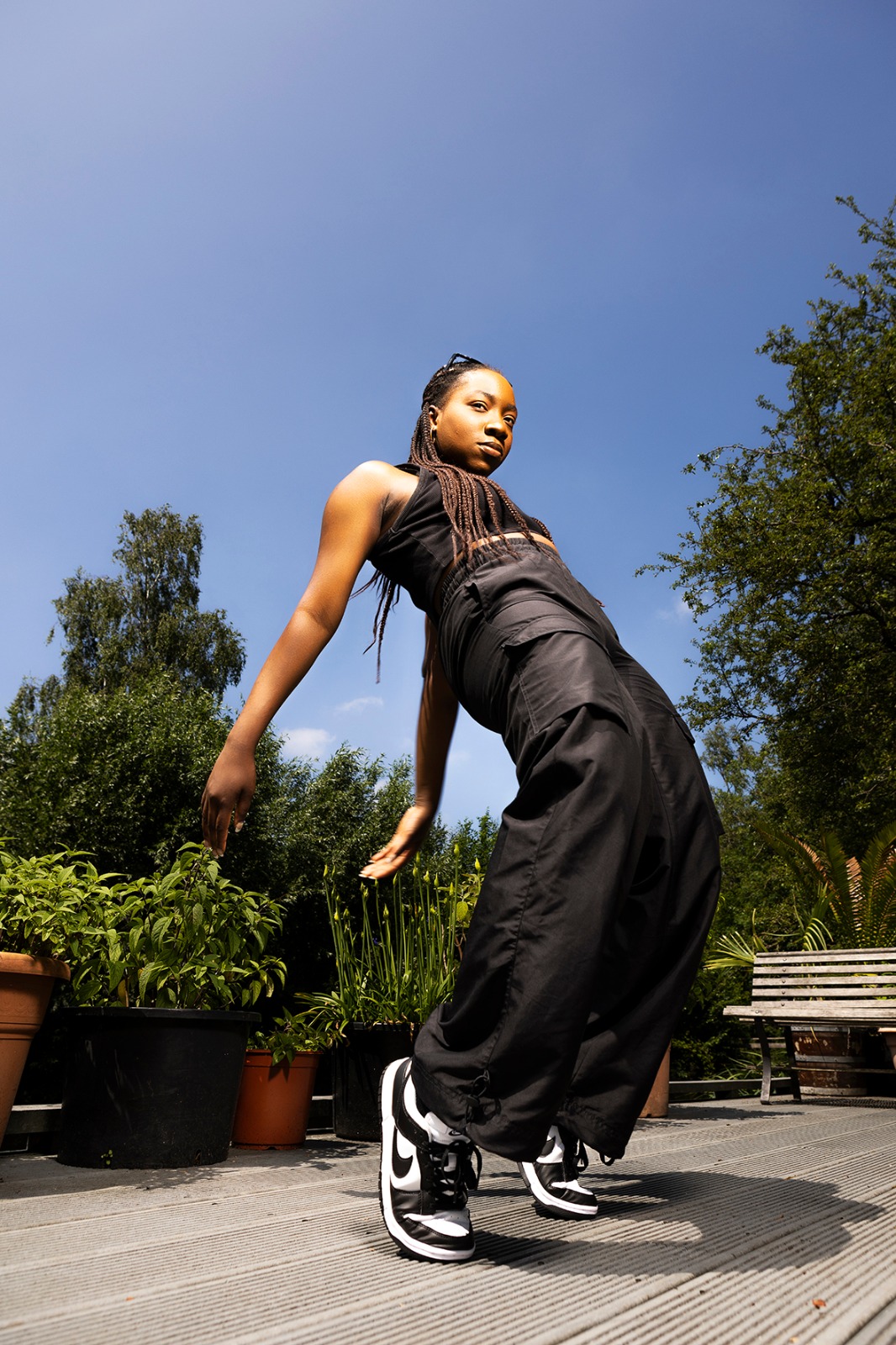Rebekah Lamb (23)

Member of the University Student Council and coordinator of the Accessibility Task Force
“I was abused by my mother growing up, which had a large impact on my view of my body. Especially when you’re a child, your brain goes into survival mode: don’t feel what’s happening, don’t acknowledge it. I kind of disconnected from my body. And because of this, I often struggle knowing what my body needs. When I feel some type of discomfort, I have to go through a list of questions: am I hungry? Too hot? Maybe there’s a light that’s buzzing? It’s a process to get back the feeling of my body being mine.
‘Tattoos are something you earn’
I’m half Irish, half Native American. The Abenaki, where my roots lie, operate outside of the Western idea of a person being an individual that has to move in a certain way and is in control of their navigation. The Abenaki work more in balance than in control. My traditional face tattoos were a way for me to put myself into the balance. Some stranger on the metro commented on them, saying I mutilated my body and lost my dignity. But that doesn’t bother me. In indigenous culture, tattoos are something you earn – I’m proud of them. Comments on my body don’t really affect me in general. I know my ancestors are proud of me and that’s all that matters. I do notice that when I walk with my cane for my chronic pain, people’s demeanour changes. They seem to feel awkward, to not know how to address me. I also get cat-called less when I walk with it.” (ES)
Alexis Arrey Bhakor (20)

Student Computer Science and founder of the Black and African Diaspora Party
“I see my body as a vessel for communication. By dancing, I’m able to express my mood, it helps me to externalize my feelings and communicate them in a non-verbal manner. Dancing also empowers me. It reflects how I’m feeling, as you can see whether I’m happy, sad or angry. It also helps to blow off some steam. When I’m studying and my mind starts wandering or things get a little chaotic in my head, I’ll take a break and start dancing. The break lasts for about half an hour and after that, I’m able to study again.
‘Dancing reflects how I’m feeling’
Although I’m not a shy person, I am reserved. But I like to challenge myself, so I also dance in public areas. When I’m dancing in public and people stop to cheer, it sometimes can be distracting because I suddenly become aware that people are looking at me. However, when I’m in my bubble, nothing can stop me. Even if a fire broke out in a building behind me, I would just keep dancing. At the same time, people clapping or cheering also empowers me. They hype me up and give me more energy and drive to continue dancing. I also like to choreograph dance routines and record them for my social media accounts. This enables me to share my love and passion for dance with people I would be unable to meet otherwise. It is also a way of displaying my talent and skills to my online community.” (BB)
.jpeg)